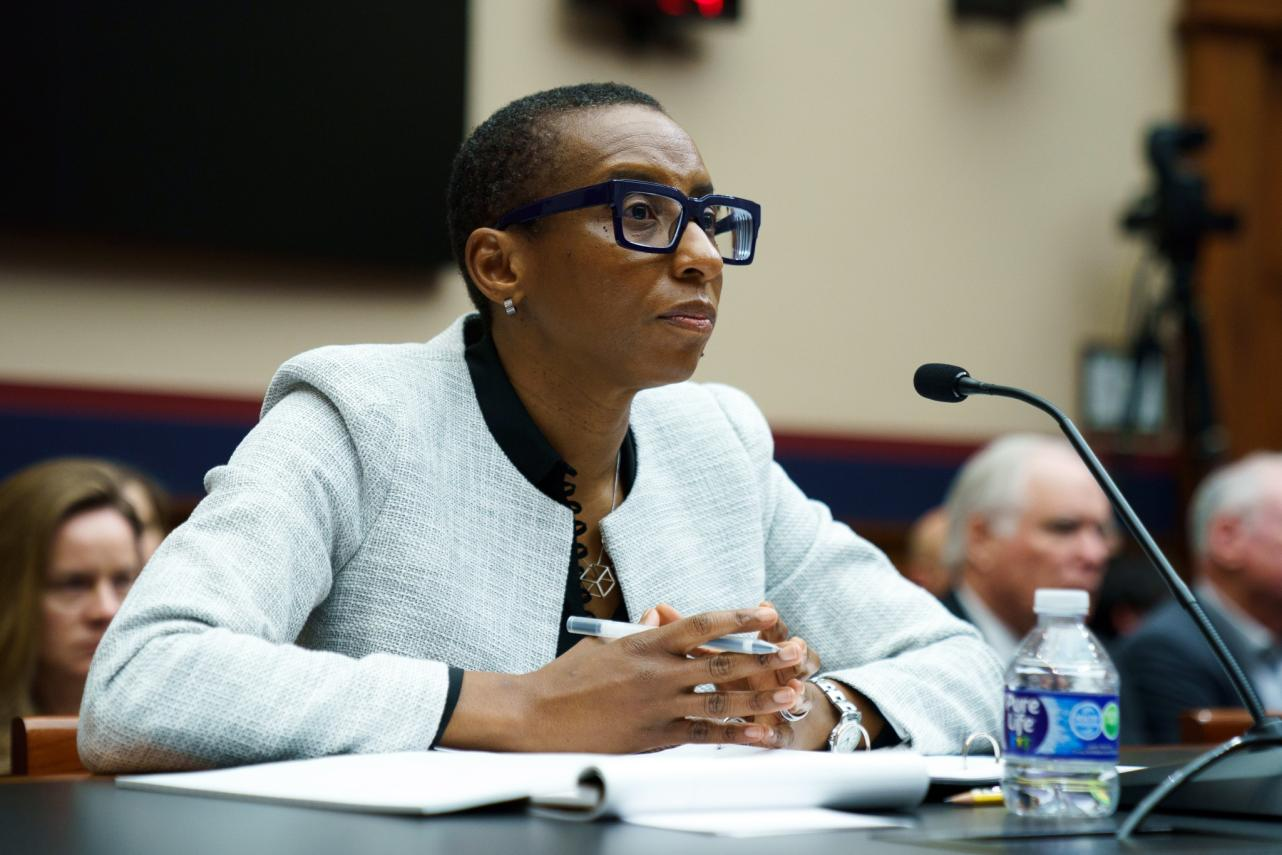
On January 2, local time, Claudine Gay, president of Harvard University, announced her resignation as president, becoming the most short-lived president in Harvard history. This is also the United States following the resignation of the president of the University of Pennsylvania McGill in December last year, the second university president to resign due to the pressure of testifying before the United States Congress.
Gay's sudden resignation, after just six months in the job, sparked widespread international concern. The resignation of Ms. Gay, the first black woman to serve as president of Harvard in its 388-year history, signals the spread of partisan warfare to colleges and universities in the United States, which will further inflame the inherent contradictions between conservatives and liberals and once again highlight the sharp divisions within American society.
On December 5, three female presidents of Harvard University, the Massachusetts Institute of Technology and the University of Pennsylvania testified at a hearing in the U.S. House of Representatives about anti-Semitism on campus. But when asked by Republican lawmakers whether the "anti-Semitic" remarks violated school rules, all three refused to give a clear answer, and said that whether the above remarks were illegal depends on the specific circumstances of the remarks and further actions. This ambiguity has infuriated conservative lawmakers and Jewish elites alike. After the hearing, a growing chorus of donors, politicians, business leaders and other prominent figures called for the immediate ouster of the presidents of the three universities, setting off a chain reaction. Under pressure, Penn's president announced his resignation on Dec. 9, and Gay followed suit less than a month later.
Since the Palestinian-Israeli conflict, the smoke of war has permeated American society in another form, and the so-called "political correctness" is frantically encroaching on the rationality and tolerance that higher education should have. Many American universities, including Harvard University, have been pushed to the forefront because of campus "anti-Semitic" activities, students are divided into "pro-Israel" and "pro-Palestine" two camps and tense confrontation, and some even escalated into violence. In this context, both the Democratic and Republican parties in the United States seem to be forcing the higher education community to take a so-called "correct and clear political stance" on campus "anti-Semitic" activities.
The original intention of "political correctness" is to promote the idea of equality, but in the context of the partisan struggle in the United States, it has been distorted into a new tool of "oppression". For years, the tug of war between conservatives and liberals in the United States has deeply torn apart American society and made "the United States of America" seem more like "the United States of America." No matter how high-sounding slogans the two sides shout, they cannot change the nature of the struggle for power behind them.
As the 2024 US presidential election kicks off, the battle between the two parties will heat up across the board. In a sense, the forced resignations of the presidents of Penn and Harvard can be seen as an appetizer from the Republican-controlled House of Representatives to the liberal base. The Democratic Party, which represents the liberal forces, will surely "pay an eye for an eye" and set the Republican Party on issues such as "Capitol Hill riots" and Trump's primary qualification.
The vicious fight between the two parties in the United States is not only a political projection of the torn American society, but also will turn back and exacerbate the extreme antagonism that already exists in society. In the current era of identity politics in the United States, how can we withstand the hurricane of "political correctness"? When President Gay did not want to give the definitive answer some wanted on the issue of "antisemitism," she effectively began the countdown to her tenure as Harvard president. After the resignations of the presidents of Penn and Harvard, has the political storm subsided? Will MIT's president survive? Let's wait and see.

According to a recent report by Rich Asplund, a columnist for Barchart, the global sugar market is currently experiencing a complex and profound supply-demand game.
According to a recent report by Rich Asplund, a columnist f…
On January 13th local time, the three major US stock indice…
Recently, the 2026 edition of the MIT Technology Review lis…
On January 15, 2026, the US military announced the seizure …
At the 2026 J.P. Morgan Healthcare Conference, a joint anno…
For much of 2025, the market was rethinking whether the dol…